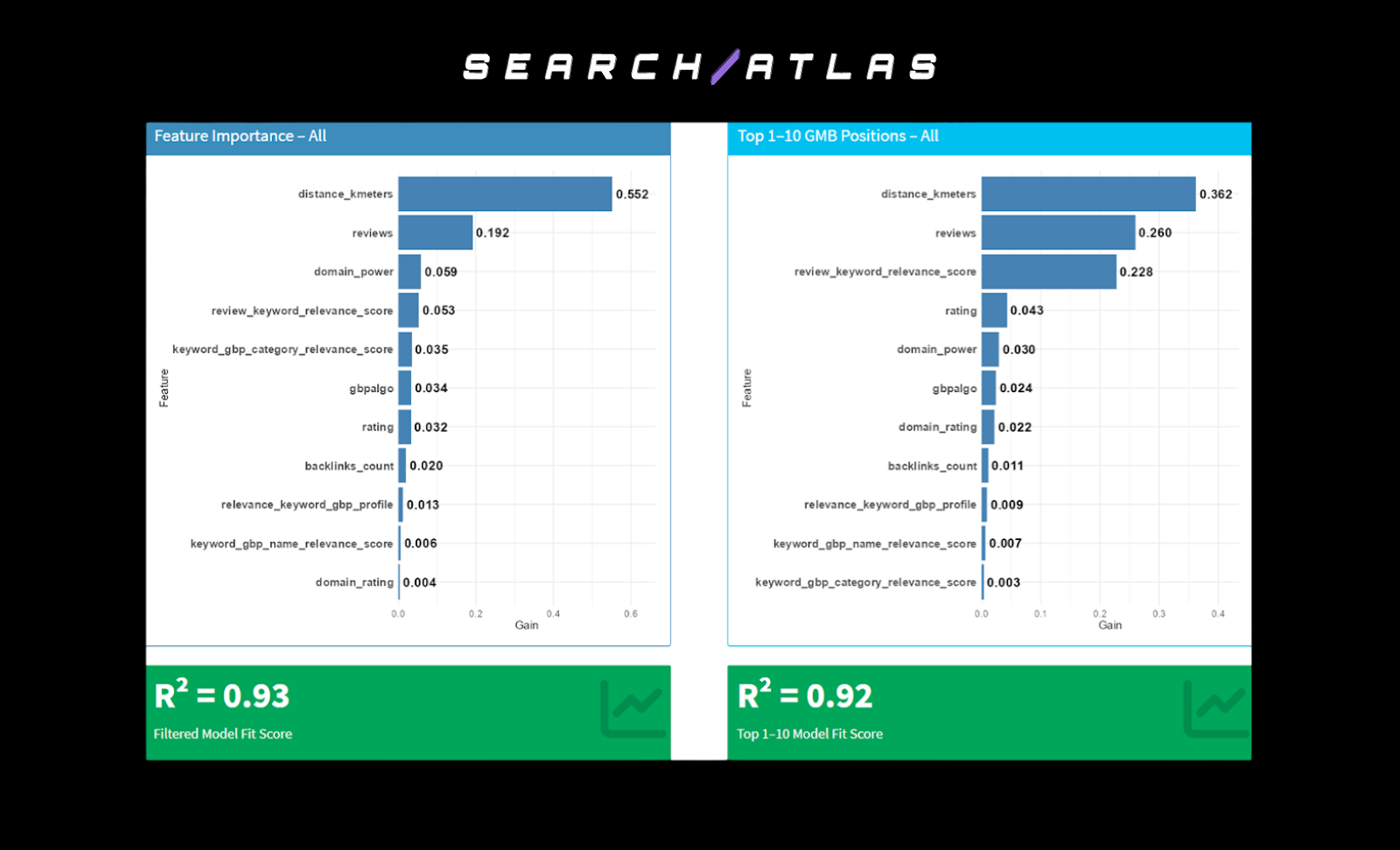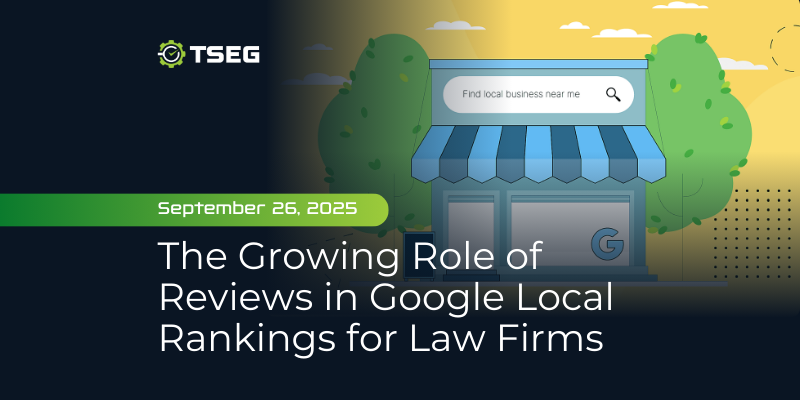The Growing Role of Reviews in Google Local Rankings for Law Firms
Posted on Wednesday, October 1st, 2025 at 1:54 pm
Google’s Local Algorithm Is Changing
Law firms focused on local visibility have long treated proximity as the most important factor in Google rankings. That approach worked when distance to the searcher was the top priority. But new findings from Search Atlas show a measurable change. While location still matters greatly, review content and volume are now strong drivers of who lands at the top.
The study analyzed more than 3,000 Google Business Profiles across the legal, health, food, and beauty sectors. It found that proximity explains 55 percent of visibility in positions one through 21. But in the top ten, that influence drops to 36 percent. In its place, review count rises to 26 percent and keyword relevance in reviews increases to 22 percent.
This confirms something experienced marketers have noticed. Being nearby might get a law firm listed in local results, but it will not necessarily push them ahead of competitors. Google is increasingly placing value on what clients say, and how closely their language matches what searchers are looking for.
If a personal injury firm has fifty reviews that include phrases like “motorcycle accident,” “wrongful death,” or “insurance company refused to pay,” it will likely outperform a competitor across the street with only ten reviews that say things like “great service.” Location opens the door, but language wins the case.
What the Data Tells Us About Google’s Priorities
Search Atlas’s analysis shows a clear pattern. Google is treating review content as a meaningful signal in deciding which businesses appear at the top of local results.

For attorneys, this means generic praise is no longer enough. Google gives more weight to reviews that include service-specific terms and client-focused details. The algorithm appears capable of understanding whether reviews mention real legal help, not just whether someone had a pleasant experience.
This puts the focus on the quality and content of client reviews. If a competing firm is collecting detailed feedback that includes practice area terms and outcome-based language, they are signaling more relevance than reviews that simply thank the firm.
The takeaway is clear. Firms that want stronger local rankings need to pay attention to how clients describe their experience.
Why Law Firms Need to Stop Ignoring Their Review Strategy
Many firms still treat reviews as a passive part of their online presence. They assume that if clients are happy, the reviews will take care of themselves. That approach is not working anymore.
Law firms have an advantage here. Clients often have intense, specific experiences worth sharing. But if those stories are not told in a way that reflects the firm’s services, they lose value in search. A five-star review that says “thank you for everything” is appreciated but offers no information that helps Google connect the review to a relevant search.
Compare that with a review that says “helped me get a settlement after a rear-end accident” or “fought for my custody rights.” These types of phrases include keywords that match common high-intent searches. The more of them your profile collects, the stronger your visibility becomes for those terms.
The strategy is not to script or pressure clients, but to guide them. A well-timed request that reminds them of the specific service you provided can go a long way. When clients understand what kind of feedback is most helpful, they are often happy to share it.

Tactics That Actually Improve Local Ranking for Attorneys
Improving your firm’s local visibility comes down to a few specific actions that influence how Google evaluates your presence.
1. Ask for reviews with intention
Timing matters. Ask clients for a review while the experience is still fresh. You can guide the outcome by reminding them of the service you provided. When a review includes that service-specific language, it gives Google a clearer signal of what your firm does.
2. Use a name that aligns with search behavior
Your Google Business Profile name should reflect how people search. A name like “Smith Injury Law Downtown” connects better than a generic firm name with no context. It helps your profile match more high-value queries without keyword stuffing.
3. Keep your information consistent and complete
Double-check your hours, contact information, and services. They should match across your website and directories. Inconsistencies weaken your authority in local search and confuse potential clients.
4. Prioritize quality and frequency
A large number of outdated reviews is not as useful as a steady flow of recent ones. Build review requests into your client follow-up process and keep it going year-round. Profiles that go quiet tend to fall behind.
These tactics are manageable and repeatable. The firms that build systems around them will continue to rank well while others fade out of view.
Winning Local Search Without Moving Your Office
Not every law firm can rely on location to stand out. In competitive markets, your proximity is often the same as dozens of other firms. That is where the strength of your online presence becomes the deciding factor.
Search Atlas’s findings confirm what the top-performing firms have already adjusted for. Google still considers location, but it’s also giving measurable weight to reviews and profile content when deciding who ranks highest. Firms that actively manage their Google Business Profile and continue to collect detailed, service-based reviews are earning better placement.
TSEG works with law firms to make sure their online presence reflects the quality of their work. From optimizing profiles to building consistent review strategies, we help attorneys compete for the top spots in local search results and convert visibility into signed cases. Contact us today to learn more.
